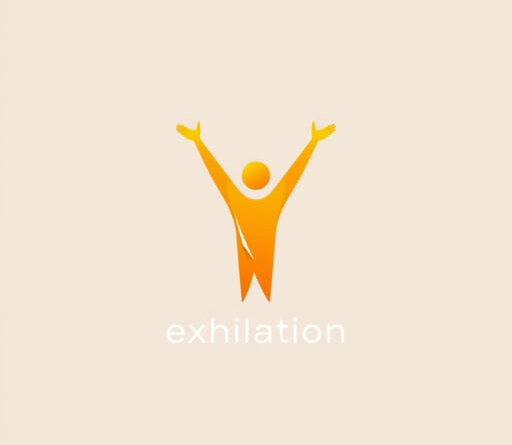How to Pronounce Exhilaration
Expressing strong feelings of joy, excitement, or thrill is an important part of everyday communication, especially when describing positive experiences. One word that perfectly captures this intense feeling is exhilaration. Whether you hear it in conversations, literature, or media, pronouncing exhilaration correctly can help you communicate with clarity and confidence. This word may appear complex due to its length and syllable structure, but with practice, anyone can master its pronunciation. This topic explores the meaning of exhilaration, breaks down its pronunciation, highlights common mistakes, and offers practical tips to help you say it fluently and naturally.
Understanding the Meaning of Exhilaration
Exhilaration refers to a state of being extremely happy, excited, or invigorated. It describes the emotional high that comes after thrilling experiences such as achieving a goal, participating in exciting activities, or simply feeling energized and alive. The word is often used to convey moments of pure joy or an uplifting sensation.
Examples of Exhilaration in Daily Life
- She felt a rush of exhilaration after finishing the marathon.
- The exhilaration of riding a roller coaster is unmatched for some people.
- Winning the competition brought a wave of exhilaration to the entire team.
Phonetic Breakdown of Exhilaration
Exhilaration is a five-syllable word with the main stress on the fourth syllable. Breaking down the word into manageable parts can make pronunciation easier to learn.
- Ex pronounced as eks, with a clear k sound.
- hil pronounced hil, as in hill.
- a a short schwa sound uh.
- ra pronounced ray.
- tion pronounced shun.
In the International Phonetic Alphabet (IPA), exhilaration is transcribed as/ɪɡËzɪlÉËreɪÊÉn/or/ÉksËhɪlÉËreɪÊÉn/, depending on accent and regional variations.
Step-by-Step Pronunciation Guide
- Start with eks or igz for the first syllable, depending on your accent.
- Follow with hil, pronounced like the word hill.
- Say a quick uh sound, which is the unstressed vowel.
- Emphasize the fourth syllable ray.
- End with shun, pronounced softly.
- Put it all together as:eks-hil-uh-RAY-shun.
Common Pronunciation Challenges
Given the word’s length and multiple syllables, some learners find it tricky to pronounce exhilaration smoothly. Typical errors include:
- Misplacing the stress on the wrong syllable, such as the first or third instead of the fourth.
- Omitting or mispronouncing the middle syllables, leading to a clipped or rushed sound.
- Pronouncing tion as tion (like tee-on) instead of the correct shun sound.
- Struggling with the h in hil, either dropping it or overemphasizing it.
Practice and awareness of these common mistakes can help you achieve accurate and confident pronunciation.
Practical Tips to Master Pronouncing Exhilaration
Listen to Native Speakers
Use online dictionaries or pronunciation apps to hear how native English speakers say exhilaration. Pay close attention to syllable stress and vowel sounds.
Break the Word Into Chunks
- Practice each syllable separately: eks hil uh ray shun.
- Gradually blend the syllables together until you can say the entire word smoothly.
Repeat Sentences Using the Word
- The exhilaration after winning the game was unforgettable.
- Riding the waves gave her a sense of exhilaration.
- There was a palpable exhilaration in the crowd during the concert.
Record and Compare
Record yourself pronouncing exhilaration and compare it with native examples. This self-feedback loop is highly effective for improvement.
Related Words and Forms
Understanding words related to exhilaration can enrich your vocabulary and improve your grasp of pronunciation patterns.
- Exhilarate: Verb meaning to make someone feel very happy or excited.
- Exhilarated: Past participle, meaning feeling thrilled or joyful.
- Exhilarating: Adjective describing something that causes excitement or joy.
Why Correct Pronunciation of Exhilaration Matters
Exhilaration is often used in formal and informal contexts to describe intense positive feelings. Pronouncing it clearly enhances your ability to express emotions vividly and engage your audience, whether in conversation, presentations, or writing. Using the word correctly and confidently also contributes to your overall fluency and professionalism in English.
General Pronunciation Improvement Tips
- Practice regularly, focusing on stress patterns and vowel sounds.
- Use phonetic guides to understand difficult sounds.
- Listen to a variety of speakers to notice accent differences.
- Incorporate new vocabulary into your speaking and writing.
- Don’t rush; take your time to pronounce longer words clearly.
Exhilaration is a vibrant word that captures moments of great joy and excitement. Although its length and syllable complexity may seem intimidating at first, breaking it down into manageable parts and practicing regularly can help you pronounce it confidently. Remember to emphasize the fourth syllable ray and finish with the soft shun sound. Listening to native speakers, repeating the word in context, and recording yourself are excellent strategies for mastering this word. With consistent effort, you will add exhilaration to your vocabulary with ease and communicate your emotions more expressively.
